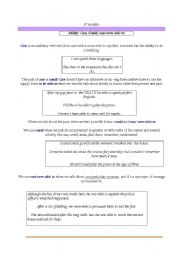
|
Can, could and be able to
This worksheet is meant to help my students understand how can, could and able to are used to express ability and possibility. There�s an explanation with examples, followed by a fill-in-the-gaps and a conversation exercise to practise the new structure in pairs.
Level: intermediate
Age: 14-17
Type: worksheet
Downloads: 11
|
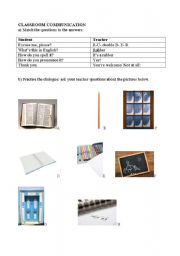
|
Classroom communication
This worksheet works well with false and complete beginners. Students learn how to ask the teacher for spelling and pronunciation of new words and are encouraged to speak English when they need to know the meaning of unknown vocabulary.
Level: elementary
Age: 10-17
Type: worksheet
Downloads: 1
|
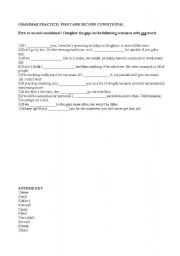
|
First and Second Conditional
A short exercise with answer key where students have to provide first or second conditional and fill in the gaps with the right verb. Very good for revision, homework or as a stop-and-check test.
Level: intermediate
Age: 13-17
Type: worksheet
Downloads: 3
|
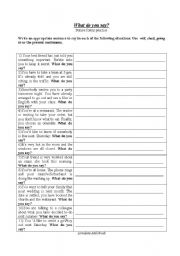
|
Future forms
Students have to produce a sentence to match each situation. They have to use future tenses (will, going to, shall, present continuous, might). Keys are provided on a separate sheet
Level: intermediate
Age: 14-17
Type: worksheet
Downloads: 8
|
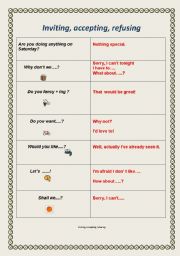
|
Inviting accepting refusing
Flashcards meant to help students practise and memorize the right phrases to make invitations, accept, refuse and give reasons, one of the main speaking functions for lower intermediate students. You can cut them up, use the first as an example and give each pair the others, making sure each student has three questions and three answers.
Level: intermediate
Age: 12-17
Type: flash-card
Downloads: 14
|
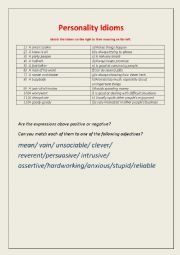
|
Personality Idioms
This is meant to enrich vocabulary of upper-intermediate to advanced students with colloquial expressions and idioms to describe people�s personality. Enjoy!
Level: advanced
Age: 14-17
Type: worksheet
Downloads: 34
|
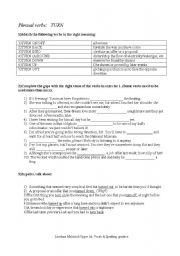
|
Phrasal verbs with TURN
This worksheet is suitable for intermediare and upper-intermediate students. It gives them practice of some phrasal verbs with TURN. After learning the verbs, students can use them actively, first in a fill-in-the-gaps exercise, then in conversation
Level: intermediate
Age: 14-17
Type: worksheet
Downloads: 16
|
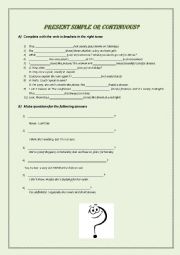
|
Present Simple or continuous?
Useful to revise the two tenses with pre-intermediate students. In the first exercise students have to complete the sentences with the right verb form. The second one is more challenging and asks them to make questions for given answers. Answer keys are provided on a separate sheet.
Level: intermediate
Age: 12-17
Type: worksheet
Downloads: 13
|
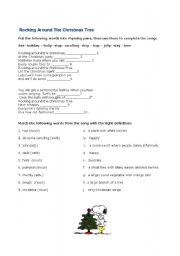
|
Song: Rocking around the Christmas tree
Students complete the lyrics of a famous Christmas song, then they listen and check. After that they learn some Christmas vocabulary by matching some of the words in the song to their meaning.
Level: elementary
Age: 11-17
Type: worksheet
Downloads: 25
|
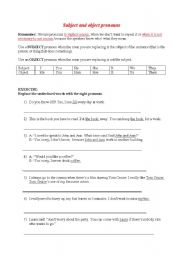
|
Subject and object pronouns
A worksheet for beginners to practise subject and object pronouns. There�s a short explanation, an exercise where students have to change the sentences replacing nouns with pronouns and answer key at the end.
Level: elementary
Age: 11-17
Type: worksheet
Downloads: 5
|